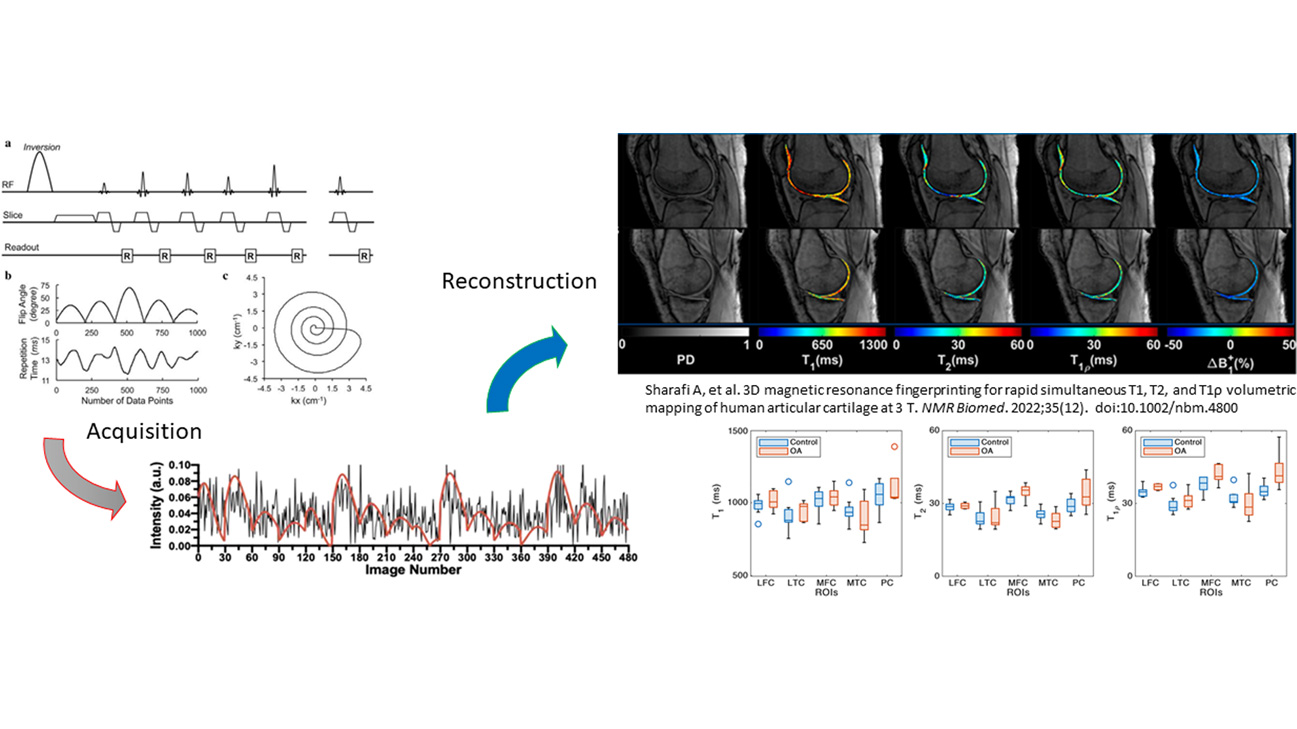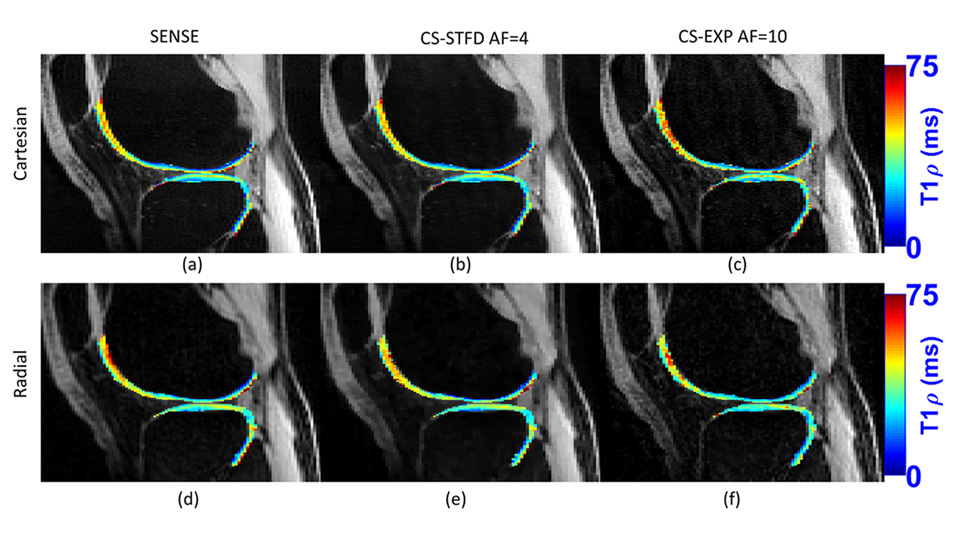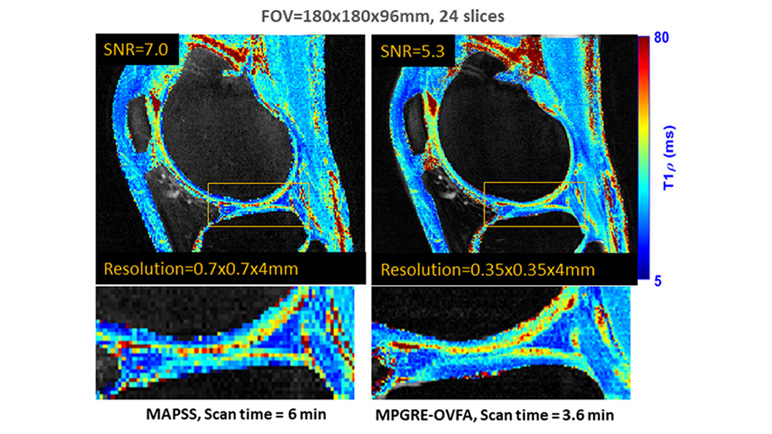Faculty

Contact Information
- marcelo.wustzibetti@nyulangone.org
- 646-501-9638
Marcelo V. Wust Zibetti, PhD
Assistant Professor
My research is primarily focused on improving MRI through the use of advanced machine-learning algorithms and artificial intelligence (AI), particularly in the realm of quantitative MRI techniques for the early detection of osteoarthritis (OA) in knee cartilage. We have developed machine learning methods to enhance MRI acquisition, discovering the best ways to reduce scan time with learned undersampling, thereby reducing patient discomfort and healthcare costs. Our team has also pioneered new machine learning approaches to design MR pulse sequences, the core codes that control MRI acquisition, resulting in fast acquisitions with improved signal-to-noise ratio (SNR) and diagnostic accuracy.
Our team has delivered advancements in image reconstruction and quantitative mapping, powered by AI and compressive sensing, making MRI faster and more precise in musculoskeletal applications. A significant aspect of my work involves MR T1ρ mapping in knee cartilage, which allows for the detection of cartilage degeneration before any morphological changes are apparent. This technique is sensitive to water protons bound to macromolecules, providing a means to detect biochemical changes associated with degenerative diseases like OA. Overall, my research has significantly enhanced the field of accelerated quantitative MRI and introduced new machine-learning algorithms that are beneficial across various applications.





